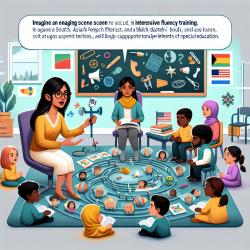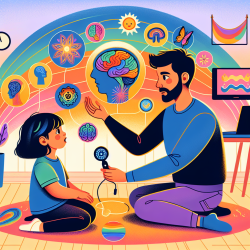In the dynamic landscape of education, the inclusion of children with special educational needs (SEN) in mainstream classrooms has been a topic of much debate. A recent systematic review titled "The effects of inclusion on academic achievement, socioemotional development and wellbeing of children with special educational needs" by Dalgaard et al. (2022) provides critical insights into this issue. This blog post will delve into the findings of this comprehensive review and offer practical steps for practitioners to enhance their approach to inclusive education.
Key Findings from the Review
The review analyzed 15 studies from nine different countries, focusing on the effects of inclusion on various outcomes for children with SEN. The results were mixed, highlighting both the potential benefits and challenges of inclusive education. Here are the key findings:
- Academic Achievement: The review found that inclusion had a small positive effect on academic outcomes in language, literacy, and math, although these effects were not statistically significant.
- Socioemotional Development: Inclusion was associated with a small positive effect on overall psychosocial adjustment, but again, the results were not statistically significant.
- Wellbeing: The effects of inclusion on children's wellbeing were inconsistent, with some studies showing positive outcomes and others showing no significant impact.
Practical Steps for Practitioners
Given the mixed results, it's clear that a one-size-fits-all approach to inclusion is not effective. Practitioners should consider the following strategies to improve the outcomes of inclusive education:
1. Individualized Education Plans (IEPs)
Developing and implementing IEPs tailored to each child's unique needs can significantly enhance their academic and socioemotional outcomes. Ensure that these plans are regularly reviewed and updated to reflect the child's progress and changing needs.
2. Professional Development for Educators
Continuous professional development is crucial for educators to effectively support children with SEN in inclusive settings. Training should focus on differentiated instruction, co-teaching strategies, and the use of assistive technologies.
3. Co-Teaching Models
Implementing co-teaching models, where general and special education teachers collaborate, can provide more comprehensive support for children with SEN. This approach allows for more individualized attention and better integration of specialized instruction within the general education curriculum.
4. Peer Support Programs
Encouraging peer support and fostering a positive classroom environment can enhance the social inclusion and wellbeing of children with SEN. Programs that promote peer mentoring and cooperative learning can help build strong social connections and reduce feelings of isolation.
5. Monitoring and Evaluation
Regularly monitoring and evaluating the effectiveness of inclusive practices is essential. Use data-driven decision-making to identify areas for improvement and adjust strategies as needed. This approach ensures that interventions are responsive to the needs of all students.
Encouraging Further Research
The review by Dalgaard et al. underscores the need for more high-quality research on the effects of inclusion, particularly studies that explore the long-term outcomes and the impact of different types of inclusive education models. Practitioners are encouraged to contribute to this body of knowledge by documenting and sharing their experiences and outcomes.
To read the original research paper, please follow this link: The effects of inclusion on academic achievement, socioemotional development and wellbeing of children with special educational needs.
Conclusion
Inclusion has the potential to transform the educational experiences of children with special needs, but it requires a thoughtful and individualized approach. By implementing the strategies outlined above and continuing to engage in research and professional development, practitioners can create more inclusive and supportive learning environments for all students.










